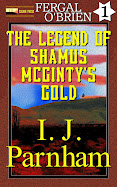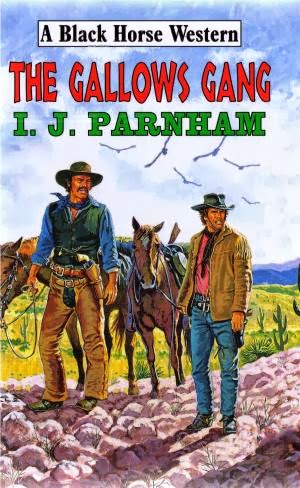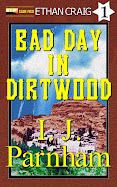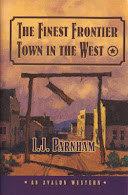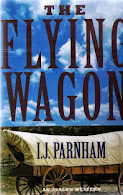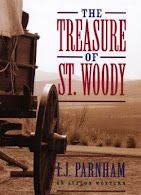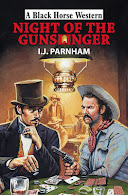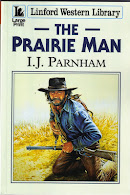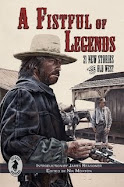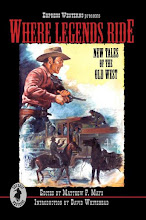Last weekend I finally got round to seeing Star Trek Into Darkness. Although I’m a life-long trekkie with a deeply-sad love for the franchise, I have no interest in summer blockbusters, so I was in no hurry to see this film. Having done so, I enjoyed it for what it was. As there’s no need for yet another review of the film, I thought I’d offer my opinion on the negative opinion about this film, a backlash against the backlash if you like.
A recent, well-publicised poll amongst one band of trekkies voted this film as being the worst ever Trek movie. This is amusing and says more about the group dynamics in fan bases than about the film, especially when considering that before the reboot the movies started with The Motion Picture and ended with Nemesis.
TMP is the slowest and most brain-numbingly boring film I’ve ever seen, and I like Andrei Tarkovsky’s science-fiction films, which are both about four hours long and mainly feature people staring into space, in black and white, discussing philosophy. But TMP is apparently better than ID because it features important Trek themes, which as far as I can make out are: if a bald-headed woman appears in your shower, make sure you give her a really short bathrobe.
25 years later Nemesis appeared, which is one of the most inane science-fiction films I’ve ever seen. Apparently it’s better than ID, too, because of its important Trek themes such as Picard getting a really cool car to whiz around in and then telling Troi to stop whinging after she’s suffered a sexual assault.
Now, I’d agree that ID lacks these important Trek themes in favour of having everyone run down corridors, but the prevailing criticism doesn’t end there. Apparently, it ripped off The Wrath of Khan, and that’s a bad thing, although that simple assessment isn’t strictly correct. If anything got ripped off it was season 4 of Enterprise. The set up for the manhunt was similar to the Vulcan trilogy. Khan’s plan resembled Brent Spiner’s motivation in the Augments trilogy. The use of Section 31 owed more to season 4 than Deep Space 9, and Robocop played pretty much the same character in season 4, too. I don’t mind this. I liked season 4 of Enterprise and if you’re going to re-use themes, pick the best.
But as it turned out, the bits that were borrowed from TWOK are about five repeated lines and a re-imagined scene, and that scene appeared to me to be more about being a follow-up to Kirk’s father’s scene in the first film. In the end it’s less of a rip-off and more of a homage, and being self-referential is pretty much the whole point of Trek. Nobody complained when Quark stood up for Ferengi culture by quoting Picard and drawing a line in the sand. Nobody complained when Janeway got a retrospective bit-part in The Undiscovered Country. Nobody complained when Worf refused to explain why Klingons no longer have smooth foreheads. Obsessive self-referencing and knowing nods to previous glories are what we sad trekkies are supposed to enjoy. But not this time, it seems.
This time the use of Khan has been deemed a bad idea because the bad guy didn’t need to be Khan and he could just have been John Harrison, a new bad guy. To some extent this is valid. The new actor has none of the glorious campness, the fun, chest-bearing silliness and the cheesy quotes of the original, but I reckon the criticism stems less from the failings of nu-Khan and more from the modern obsession with comic book heroes. Every Batman has his Joker, is the modern attitude to action films. Each superhero film franchise builds up to the superhero taking on his arch-enemy and when he’s done that, the studio reboot and do it all over again. So, the logic appears to be that Khan is Kirk’s arch-enemy and he must do epic battle with Kirk about once every ten years. I say, no he doesn’t. Trek was never so simple as to have arch-enemies, well, except for Voyager and the Borg Queen. Khan was only ever just another bad guy and in this movie he got the level of respect he deserved.
But, I’ve read repeatedly, the new Khan story has plot-holes. Er, yes it has, but for a moment let us look back at the top rated Trek movie, the aforementioned TWOK, the movie that is sacred and which has a story that's so superior to ID’s, apparently. TWOK features this bloke who fought in a war in the 1990s that we somehow all missed hearing about and he got frozen and blasted into space because apparently that's how we deal with war criminals. Kirk finds Khan and being a nice chap he gives him a world to live on.
Twenty years later a nearby planet has blown up, but some top planetary scientists didn’t spot that, even though they're conducting a detailed planetary survey. They forget Khan is on the nearby planet, but uh-oh they got the planets wrong and mistakenly they land on Khan's planet. Chekov, who joined the show after the Khan episode recognizes Khan and Khan being a superior intellect recognizes Chekov. The only other surviving life forms on the planet are bugs that turn people into mind-controlled zombies if the bug crawls into their ear. So Khan uses the bugs to escape and he's hell-bent on getting revenge against Kirk even though it's not Kirk's fault that the other planet blew up and that nobody came for tea in the last twenty years.
Despite being the cleverest man in all creation, Khan's not so clever as to know about starship access codes and he's also so dumb he thinks that stranding Kirk on a moon will somehow kill him because nobody else will come looking for him. Anyhow he gets hold of this device that creates ecosystems because that's what people hell-bent on revenge do and this device, which amazingly was created by Kirk's son and former lover can also destroy...
The point is you can have this sort of fun with any movie, tv series, book, play, comic etc. But it's irrelevant. Good stories are about the strength of the narrative high points, not the depth of the plotholes, and stories don’t become stronger by filling those holes. Attack the high points, if you wish, but don't probe for weaknesses because all movies have them and you’ll find plenty.
But apparently the plot-holes in ID are too large to ignore. The biggest irritation appears to be Khan using a transporter to reach the Klingon home world, which apparently will henceforth render spaceships obsolete. I don't accept this. The transporter was added to the stories in the first place to save the money involved in filming trips down to planets and to speed up the story telling. Only when the show could afford to build a shuttle did we see them and afterwards, we saw plenty of shuttles, despite the existence of a transporter that ought to render them obsolete. The reason for this is that the show created dramatic reasons why the transporter wouldn't work to counter the effect of the magic beam, such as shields and power failures, and deep scientific reasons such as fluctuations in the tachyon thingy field.
I assume Khan's magic beam will also get constraints later. Perhaps it can be used only on supermen, or perhaps if the location selected has shields the transported person dies, thus rendering it as technology that can be used only in extreme circumstances, like several hundred other magic solutions to impossible problems the series has come up with over the years.
But it didn't end with Khan's magic beam as there's then Khan’s magic blood, which single-handedly destroys the franchise’s scientific credentials. This didn’t concern me either, as every Trek incarnation has had its own magic blood. The Next Generation solved most of its problems with DNA. A character could get turned into wood, put through a chipper, burnt to ashes and scattered in space, but a single strand of DNA gleaned from a hair-brush would bring that person back to life, with all their memories intact.
Deep Space 9 had Ketracel White, the magic blood that resolved the tricky problem of how the Founders would control their soldiers in the Dominion. Then there was Voyager and Seven of Nine’s magic blood that could solve any tricky plot problem. Heck, there was one episode where Neelix died horribly, got left in the back of a shuttle for three days until he was going a bit whiffy, and Seven still declared that the nanobots in her magic blood could bring him back to life, and they did. Strangely, she never offered to bring any of the non-contracted actors back from the dead, but I find it hard to accept that her magic blood is never criticised, but Khan’s magic blood makes trekkies foam at the mouth.
Curiously, Enterprise with its low-tech approach didn’t go in for magic blood and trekkies hated that, but then again we trekkies, as a fan-base, hate change. We hated The Next Generation at first because it didn’t have Spock and Kirk in it, until he found we quite liked it because the new characters were good. We hated Deep Space 9 at first because it was dark and it violated Gene Roddenberry’s optimistic vision of the future, except we now love it because it’s dark and because it tested the Trek ideals. We hated Voyager at first because it was crap, but now we quite like it because it didn’t take itself too seriously. We hated Enterprise at first because it was goofy and, well, admittedly that’s yet to flip, but it seems the same thing is happening with the re-boot.
I could bang on some more, but in short, yes, the latest film is big, dumb and silly, but that’s what it tried to be. And yes, it has numerous faults. It’s not as fun as the first re-boot. There’s too much soulless CGI action and not enough character moments, and some characters, especially McCoy, get too little to do, while other characters like Scotty get too much to do. But no matter, the re-boot knows what it’s trying to do, and it does it, so I hope the next film in the series doesn’t take heed of the critics and try to be important. I hope it continues ploughing the same big, dumb trough, although hopefully without the lens flares. Yes, there are still plenty of interesting Trek themes that need exploring, but in-depth exploration of the human condition should be left for a Trek tv series where there’s the time and space to do more. With the 50 year anniversary coming up, I think the time is right for Trek to return to the tv and a few more big, dumb movies making half a billion at the box office will help that happen better than if they were still making movies like Nemesis.
Saturday 21 September 2013
Wednesday 11 September 2013
Ellen: These Friends of Mine
I recently discovered, courtesy of youtube, that the 1990s sitcom Ellen had a first season. This might not sound like a stunning discovery, but it surprised me.
When Ellen was shown in the UK, they didn’t show season 1, so I was under the impression that season 2 was the first season and that it lasted for four years. During those four years it transformed from a flat-based sitcom to a work-based sitcom to an angst-filled sitcom until finally dying when it became a worthy sitcom. Finding it had a first season completes the story, as yet again that year was different to all the rest, being essentially Friends.
Of course plenty of sitcoms have tried to be cheap rip-offs of the most successful sitcom of all time, but Ellen was more interesting than most for the simple reason it was made before Friends.
The similarities between Ellen and Friends are many and strange, and I'm surprised it's not commented on more. The premise is the same of late twenty something friends sharing flats. Plots are broadly the same, such as Ellen dating an older guy and hilarity ensues, or Ellen and a friend date the same guy and hilarity ensues. Bit part actors crop up in both shows. Phoebe's weird brother appears in Ellen, Ellen's annoying friend Audrey plays a similar role in the Friends pilot, while Maggie Wheeler is a main character in Ellen playing a less nasal version of Janice.
Strangest of all, the title credit sequence comes over as a first draft gentler version of the Friends title credits and ends with everyone sitting on a sofa outside beside an illuminated lamp. And that's before even considering the sitcom was actually called These Friends of Mine before being changed to Ellen in season 2.
There's probably an alternate reality somewhere where Friends was cancelled after a few troubled and unsuccessful years, probably after revealing Chandler was in the closet after all, while These Friends of Mine became a global phenomenon with everyone wondering whether Adam and Ellen would ever get together. The reason it didn't happen is simple: These Friends of Mine isn't all that funny, but that in itself is interesting.
One of the odd things about successful sitcoms is that the main cast are nearly always horrible people. Friends is a classic case with all six main characters being arrogant, selfish, self-absorbed, entitled, whiney, vain good-for-nothings who spend every episode being rude to nicer people. For some reason horrible people make good comedy, whereas These Friends of Mine shows what happens when the main characters are genuinely nice people: you get nice people being nice and that's not very funny.
In season 1, Ellen is a kooky motormouth, but not so kooky and talkative that she's annoying. Adam is a pleasant bloke, while Anita is an ordinary woman. Oddest of all is Holly, who is shy and quiet. This isn't an unusual trait in sitcoms, but, for example, in shows like the Big Bang Theory shy and quiet people have to show they're shy and quiet by being outgoing and loud. Holly doesn’t do that. She's genuinely shy and quiet and is usually shown sitting nervously with downcast eyes. The thing is, that doesn’t work in comedy and neither does being ordinary or being nice.
So for season 2 the show was retitled as Ellen, it stopped trying to be Friends and left the new sitcom Friends to be Friends, and the supporting cast were unceremoniously ditched. Shy Holly left, never to be mentioned again, and was replaced with the loud and brassy Paige. Friendly Anita left, never to be mentioned again, and was replaced with the loud and annoying Audrey. And before long ordinary Adam left, never to be mentioned again, and was replaced with the loud and aggressive Spence while even the pleasant Ellen became loud and whiney.
And with those changes the comedy worked, until Dan put Ellen off men for life, but that's another story.
When Ellen was shown in the UK, they didn’t show season 1, so I was under the impression that season 2 was the first season and that it lasted for four years. During those four years it transformed from a flat-based sitcom to a work-based sitcom to an angst-filled sitcom until finally dying when it became a worthy sitcom. Finding it had a first season completes the story, as yet again that year was different to all the rest, being essentially Friends.
Of course plenty of sitcoms have tried to be cheap rip-offs of the most successful sitcom of all time, but Ellen was more interesting than most for the simple reason it was made before Friends.
The similarities between Ellen and Friends are many and strange, and I'm surprised it's not commented on more. The premise is the same of late twenty something friends sharing flats. Plots are broadly the same, such as Ellen dating an older guy and hilarity ensues, or Ellen and a friend date the same guy and hilarity ensues. Bit part actors crop up in both shows. Phoebe's weird brother appears in Ellen, Ellen's annoying friend Audrey plays a similar role in the Friends pilot, while Maggie Wheeler is a main character in Ellen playing a less nasal version of Janice.
Strangest of all, the title credit sequence comes over as a first draft gentler version of the Friends title credits and ends with everyone sitting on a sofa outside beside an illuminated lamp. And that's before even considering the sitcom was actually called These Friends of Mine before being changed to Ellen in season 2.
There's probably an alternate reality somewhere where Friends was cancelled after a few troubled and unsuccessful years, probably after revealing Chandler was in the closet after all, while These Friends of Mine became a global phenomenon with everyone wondering whether Adam and Ellen would ever get together. The reason it didn't happen is simple: These Friends of Mine isn't all that funny, but that in itself is interesting.
One of the odd things about successful sitcoms is that the main cast are nearly always horrible people. Friends is a classic case with all six main characters being arrogant, selfish, self-absorbed, entitled, whiney, vain good-for-nothings who spend every episode being rude to nicer people. For some reason horrible people make good comedy, whereas These Friends of Mine shows what happens when the main characters are genuinely nice people: you get nice people being nice and that's not very funny.
In season 1, Ellen is a kooky motormouth, but not so kooky and talkative that she's annoying. Adam is a pleasant bloke, while Anita is an ordinary woman. Oddest of all is Holly, who is shy and quiet. This isn't an unusual trait in sitcoms, but, for example, in shows like the Big Bang Theory shy and quiet people have to show they're shy and quiet by being outgoing and loud. Holly doesn’t do that. She's genuinely shy and quiet and is usually shown sitting nervously with downcast eyes. The thing is, that doesn’t work in comedy and neither does being ordinary or being nice.
So for season 2 the show was retitled as Ellen, it stopped trying to be Friends and left the new sitcom Friends to be Friends, and the supporting cast were unceremoniously ditched. Shy Holly left, never to be mentioned again, and was replaced with the loud and brassy Paige. Friendly Anita left, never to be mentioned again, and was replaced with the loud and annoying Audrey. And before long ordinary Adam left, never to be mentioned again, and was replaced with the loud and aggressive Spence while even the pleasant Ellen became loud and whiney.
And with those changes the comedy worked, until Dan put Ellen off men for life, but that's another story.
Sunday 1 September 2013
Mendosa'a Gun-runners now available on Kindle
My 8th Black Horse Western Mendosa’s Gun-runners is now available on Kindle. Unless anyone stops me, over the coming months I plan to re-publish several of my early westerns on amazon and for no particularly good reason I decided to start with this one.
I’m one of those writers who never looks back at anything I’ve written after it’s been published. I just know within a few words I’ll find something I could have done better or, worst of all, a proof-reading error, and there’s absolutely nothing I can do about it. Reading a story I wrote over ten years ago was therefore something I approached with trepidation.
As it turned out, I was still happy with the story. I think it was my first novel to include a massive plot twist at the half-way point, and I reckon it still works. I also remember agonizing over the ending.
As it’s a western, I did what I’d always done and wrote a huge climactic gunfight, except afterwards, I just wasn’t happy with ending the book with twenty pages of non-stop mayhem. I wasn’t sure why, but this tale didn’t feel like it was that sort of story
So I gritted my teeth and pressed the delete key. Then I made the lack of an on-page resolution between the good guys and the bad guys into a plot point for a slightly different sort of ending. Thankfully that still felt like the right thing to do.
Anyhow, the book is now available from Amazon.
When Quinn Mendosa’s gun-runners steal fifty crates of rifles from Fort Stirling, Sheriff Rourke Bowman reckons that plenty of trouble will be heading his way.
But that trouble arrives sooner than he expects when his jailbird brother Dave Bowman rides into town and raises hell. Rourke has enough trouble on his hands, but when Dave offers to help him capture Mendosa by infiltrating his gun-runners it’s an offer that’s just too good to refuse.
Can the unreliable Dave complete his mission before those rifles fulfil their deadly purpose? Or will Rourke live to regret not running Dave out of town the moment he first clapped eyes on him?
As it turned out, I was still happy with the story. I think it was my first novel to include a massive plot twist at the half-way point, and I reckon it still works. I also remember agonizing over the ending.
As it’s a western, I did what I’d always done and wrote a huge climactic gunfight, except afterwards, I just wasn’t happy with ending the book with twenty pages of non-stop mayhem. I wasn’t sure why, but this tale didn’t feel like it was that sort of story
So I gritted my teeth and pressed the delete key. Then I made the lack of an on-page resolution between the good guys and the bad guys into a plot point for a slightly different sort of ending. Thankfully that still felt like the right thing to do.
Anyhow, the book is now available from Amazon.
When Quinn Mendosa’s gun-runners steal fifty crates of rifles from Fort Stirling, Sheriff Rourke Bowman reckons that plenty of trouble will be heading his way.
But that trouble arrives sooner than he expects when his jailbird brother Dave Bowman rides into town and raises hell. Rourke has enough trouble on his hands, but when Dave offers to help him capture Mendosa by infiltrating his gun-runners it’s an offer that’s just too good to refuse.
Can the unreliable Dave complete his mission before those rifles fulfil their deadly purpose? Or will Rourke live to regret not running Dave out of town the moment he first clapped eyes on him?
Subscribe to:
Posts (Atom)




